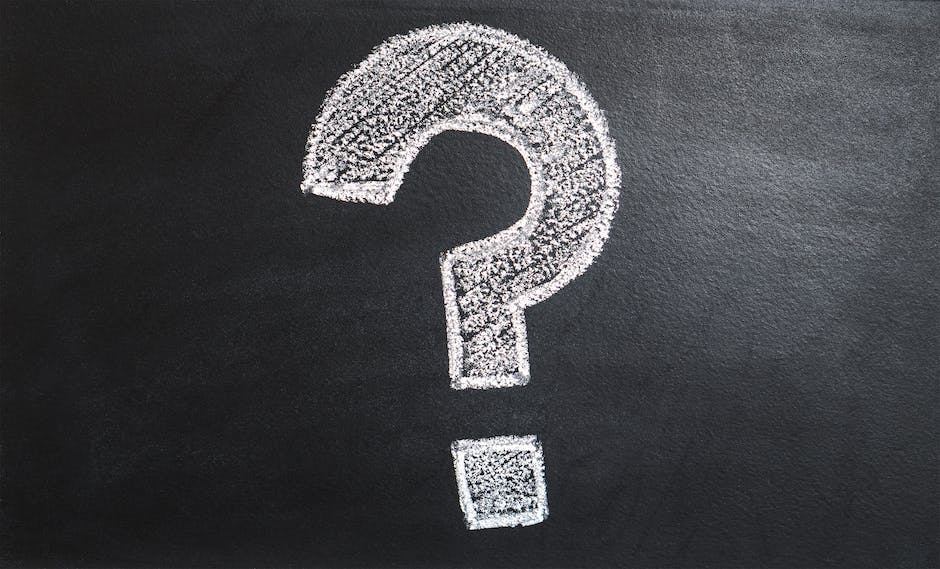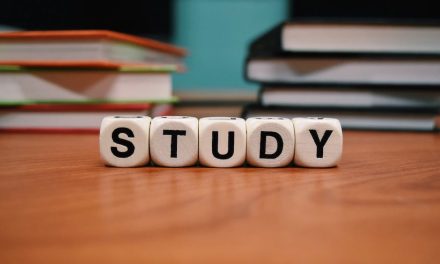Table of Contents
- Introduction
- The Art of Asking Effective Questions: A Guide to Improve Communication
- Mastering the Skill of Questioning: Techniques for Asking the Right Questions
- Enhancing Critical Thinking Through Questioning: Strategies for Better Decision Making
- The Power of Curiosity: How Asking the Right Questions Can Lead to Personal Growth
- Q&A
- Conclusion
Asking the right questions: Unlocking better solutions.
Introduction
Asking the right questions is a crucial skill that can greatly impact our ability to gather information, solve problems, and make informed decisions. By improving our questioning techniques, we can uncover deeper insights, challenge assumptions, and foster meaningful conversations. In this article, we will explore the importance of asking the right questions and discuss strategies to enhance our questioning skills.
The Art of Asking Effective Questions: A Guide to Improve Communication

Asking questions is an essential part of effective communication. Whether we are conducting an interview, engaging in a conversation, or seeking information, the quality of our questions can greatly impact the outcome. However, not all questions are created equal. Some questions may lead to insightful discussions, while others may result in confusion or frustration. In order to improve our communication skills, it is crucial to learn the art of asking effective questions.
One key aspect of asking the right questions is being clear about our intentions. Before asking a question, we should take a moment to reflect on what we hope to achieve through the conversation. Are we seeking specific information? Do we want to encourage critical thinking? Are we trying to build rapport? By clarifying our intentions, we can tailor our questions to align with our goals.
Another important factor to consider is the context in which we are asking the question. Different situations call for different types of questions. For example, in an interview setting, open-ended questions can be valuable in eliciting detailed responses and gaining deeper insights. On the other hand, closed-ended questions may be more appropriate when seeking specific information or confirming facts. By adapting our questioning style to the context, we can enhance the effectiveness of our communication.
Furthermore, the phrasing of our questions can greatly influence the responses we receive. Instead of asking leading questions that steer the conversation in a particular direction, it is often more beneficial to ask neutral questions that encourage honest and unbiased answers. For instance, instead of asking, “Don’t you think this is the best solution?” we can ask, “What are your thoughts on this solution?” This subtle shift in phrasing can create a more open and inclusive dialogue.
In addition to phrasing, the tone and delivery of our questions also play a significant role in effective communication. It is important to approach questioning with a genuine curiosity and respect for the other person’s perspective. By adopting a non-judgmental and empathetic tone, we can create a safe space for open and honest communication. This, in turn, encourages the other person to share their thoughts and feelings more freely.
Moreover, active listening is a crucial skill that complements effective questioning. When we ask a question, it is essential to attentively listen to the response and show genuine interest. By actively engaging with the answers, we can ask follow-up questions that delve deeper into the topic and demonstrate our understanding. This not only enhances the quality of the conversation but also fosters a sense of trust and mutual respect.
Lastly, it is important to be mindful of the timing and frequency of our questions. Bombarding someone with a barrage of questions can be overwhelming and hinder effective communication. Instead, we should allow for pauses and give the other person time to process their thoughts. Additionally, asking too many questions in quick succession can make the conversation feel like an interrogation. By spacing out our questions and allowing for natural flow, we can create a more comfortable and engaging dialogue.
In conclusion, asking effective questions is an art that can greatly improve our communication skills. By clarifying our intentions, adapting to the context, using neutral phrasing, maintaining a respectful tone, actively listening, and being mindful of timing, we can enhance the quality of our conversations. Effective questioning not only helps us gather information but also fosters deeper understanding, empathy, and connection with others. So, let us strive to ask the right questions and unlock the power of effective communication.
Mastering the Skill of Questioning: Techniques for Asking the Right Questions
Asking questions is a fundamental skill that we use every day, whether it’s in our personal or professional lives. However, not all questions are created equal. Some questions lead to insightful discussions and valuable information, while others fall flat and fail to elicit meaningful responses. In order to improve our questioning skills, it is important to understand the art of asking the right questions.
One technique for asking the right questions is to focus on open-ended inquiries. Open-ended questions encourage the respondent to provide detailed and thoughtful answers, rather than simple yes or no responses. For example, instead of asking, “Did you enjoy the presentation?” a more effective open-ended question would be, “What aspects of the presentation did you find most interesting or valuable?” This allows the respondent to delve deeper into their thoughts and provide more meaningful feedback.
Another technique is to avoid leading questions. Leading questions are those that suggest a particular answer or bias the respondent’s response. These types of questions can limit the range of answers and hinder the exploration of different perspectives. For instance, instead of asking, “Don’t you think the new marketing strategy is effective?” a more neutral and open question would be, “What are your thoughts on the new marketing strategy?” This allows for a more unbiased and diverse range of responses.
Additionally, it is important to consider the context and timing of our questions. Asking the right question at the wrong time can lead to confusion or frustration. For example, if someone is in the middle of a task or clearly preoccupied, it may not be the best time to ask a complex or thought-provoking question. It is important to be mindful of the situation and choose an appropriate moment to ask our questions.
Furthermore, active listening is a crucial skill that complements effective questioning. By actively listening to the responses we receive, we can ask follow-up questions that build upon the information provided. This demonstrates our genuine interest in the conversation and encourages further exploration of the topic. For example, if someone mentions a particular challenge they are facing, we can ask, “How have you tried to overcome this challenge so far?” This shows that we are actively engaged in the conversation and encourages the respondent to share more insights.
In addition to these techniques, it is important to be aware of our own biases and assumptions when asking questions. Our preconceived notions can influence the way we phrase our questions and limit the range of answers we receive. By being mindful of our biases and striving for objectivity, we can ask more inclusive and thought-provoking questions. This allows for a more diverse range of perspectives and fosters a deeper understanding of the topic at hand.
In conclusion, improving our questioning skills is a valuable endeavor that can enhance our personal and professional interactions. By focusing on open-ended inquiries, avoiding leading questions, considering context and timing, actively listening, and being aware of our biases, we can ask the right questions that lead to insightful discussions and valuable information. Mastering the skill of questioning is an ongoing process, but with practice and mindfulness, we can become more effective questioners and gain a deeper understanding of the world around us.
Enhancing Critical Thinking Through Questioning: Strategies for Better Decision Making
Improving Our Questions: Asking the Right Ones
Enhancing Critical Thinking Through Questioning: Strategies for Better Decision Making
In today’s fast-paced and complex world, making effective decisions is crucial. Whether it’s in our personal lives or professional careers, the ability to think critically and make informed choices can greatly impact our success. One powerful tool that can enhance our critical thinking skills is the art of asking the right questions. By improving the quality of our questions, we can gain deeper insights, challenge assumptions, and make more informed decisions.
To begin, it is important to understand the role of questioning in critical thinking. Questions serve as the catalyst for exploration and analysis. They allow us to dig deeper, challenge our own biases, and uncover hidden assumptions. By asking the right questions, we can uncover new perspectives and consider alternative solutions. However, not all questions are created equal. Some questions may be too broad or vague, while others may be leading or biased. To improve our questioning skills, we must learn to ask open-ended, thought-provoking questions that encourage critical thinking.
One strategy for asking better questions is to focus on the problem at hand. Often, we are quick to jump to solutions without fully understanding the problem. By taking the time to ask probing questions about the problem, we can gain a clearer understanding of its root causes and potential implications. For example, instead of asking, “How can we increase sales?” a more effective question might be, “What factors are contributing to our declining sales, and how can we address them?”
Another strategy is to challenge assumptions. Assumptions are beliefs or ideas that we take for granted without questioning. By questioning our assumptions, we can uncover biases and explore alternative perspectives. For instance, instead of assuming that a certain marketing strategy will be effective, we can ask, “What evidence do we have to support this assumption, and are there any alternative approaches we should consider?”
Furthermore, it is important to ask questions that encourage critical thinking and reflection. Questions that require deeper analysis and evaluation can help us make more informed decisions. For example, instead of asking, “What is the best option?” we can ask, “What are the pros and cons of each option, and how do they align with our goals and values?”
Additionally, it is crucial to ask questions that promote creativity and innovation. By asking open-ended questions that encourage brainstorming and exploration, we can generate new ideas and solutions. For instance, instead of asking, “How can we improve customer satisfaction?” we can ask, “What are some unconventional ways we can delight our customers and exceed their expectations?”
Lastly, it is important to listen actively and ask follow-up questions. Active listening involves fully engaging with the speaker and seeking clarification or additional information when needed. By asking follow-up questions, we can demonstrate our interest and encourage further discussion. This not only helps us gain a deeper understanding but also fosters a collaborative and inclusive environment.
In conclusion, improving our questioning skills is essential for enhancing critical thinking and making better decisions. By asking the right questions, we can challenge assumptions, explore alternative perspectives, and generate creative solutions. Strategies such as focusing on the problem, challenging assumptions, encouraging critical thinking and reflection, promoting creativity and innovation, and actively listening can all contribute to asking better questions. As we continue to refine our questioning skills, we can unlock new insights, make more informed decisions, and ultimately achieve greater success in our personal and professional lives.
The Power of Curiosity: How Asking the Right Questions Can Lead to Personal Growth
Improving Our Questions: Asking the Right Ones
Curiosity is a powerful force that drives personal growth and development. It is through curiosity that we seek knowledge, challenge our assumptions, and expand our understanding of the world. One of the most effective ways to harness the power of curiosity is by asking the right questions. By asking thoughtful and insightful questions, we can unlock new insights, deepen our understanding, and foster personal growth.
Asking the right questions is an art that requires practice and intentionality. It is not simply about asking any question, but rather about asking the questions that will lead us to new perspectives and deeper understanding. So, how can we improve our questioning skills and ask the right questions?
First and foremost, it is important to approach questioning with an open mind. This means setting aside our preconceived notions and biases and being willing to explore new ideas and perspectives. By approaching questioning with an open mind, we create space for new insights and discoveries.
Another key aspect of asking the right questions is being curious and genuinely interested in the topic at hand. When we are genuinely curious, our questions become more thoughtful and insightful. We are more likely to ask follow-up questions and dig deeper into the subject matter. This curiosity fuels our desire to learn and grow.
In addition to curiosity, it is important to be attentive and actively listen to the responses we receive. Asking the right questions is not just about the act of asking, but also about the ability to listen and absorb the information being shared. By actively listening, we can ask more relevant and meaningful questions that build upon the conversation.
Furthermore, it is crucial to ask open-ended questions that encourage discussion and exploration. Open-ended questions cannot be answered with a simple “yes” or “no” but require the respondent to provide more detailed and thoughtful responses. These types of questions promote deeper thinking and reflection, leading to personal growth.
Asking the right questions also involves being aware of our own biases and assumptions. We all have biases that shape our perspectives and influence the questions we ask. By acknowledging and challenging our biases, we can ask more inclusive and diverse questions that consider multiple viewpoints. This helps us to broaden our understanding and foster personal growth.
Moreover, it is important to ask questions that challenge the status quo and push boundaries. By asking unconventional and thought-provoking questions, we can challenge existing norms and explore new possibilities. These types of questions encourage critical thinking and innovation, leading to personal growth and development.
Lastly, it is essential to reflect on the questions we ask and the impact they have on our personal growth. By regularly evaluating our questioning skills, we can identify areas for improvement and make adjustments accordingly. This self-reflection allows us to continuously refine our questioning abilities and deepen our personal growth journey.
In conclusion, asking the right questions is a powerful tool for personal growth and development. By approaching questioning with an open mind, being genuinely curious, actively listening, asking open-ended questions, challenging biases, pushing boundaries, and reflecting on our questioning skills, we can unlock new insights, deepen our understanding, and foster personal growth. So, let us embrace the power of curiosity and improve our questioning skills to ask the right questions that lead us on a path of continuous growth and discovery.
Q&A
1. Why is it important to ask the right questions?
Asking the right questions helps us gather relevant information, gain deeper insights, and make informed decisions.
2. How can we improve our questioning skills?
We can improve our questioning skills by practicing active listening, being curious, avoiding assumptions, and using open-ended questions.
3. What are some common mistakes to avoid when asking questions?
Common mistakes to avoid include asking leading or biased questions, asking too many closed-ended questions, and not giving the person enough time to respond.
4. How can we ensure our questions are effective?
To ensure our questions are effective, we should focus on clarity, relevance, and purpose. It’s also important to consider the context and the person we are asking the question to.
Conclusion
In conclusion, improving our questions by asking the right ones is crucial for effective communication and problem-solving. By formulating clear and concise questions, we can gather relevant information, gain deeper insights, and make informed decisions. Asking the right questions helps us to better understand complex issues, challenge assumptions, and explore different perspectives. It also fosters critical thinking, encourages active listening, and promotes meaningful conversations. Ultimately, by honing our questioning skills, we can enhance our ability to communicate effectively and achieve better outcomes in various aspects of life.






Recent Comments